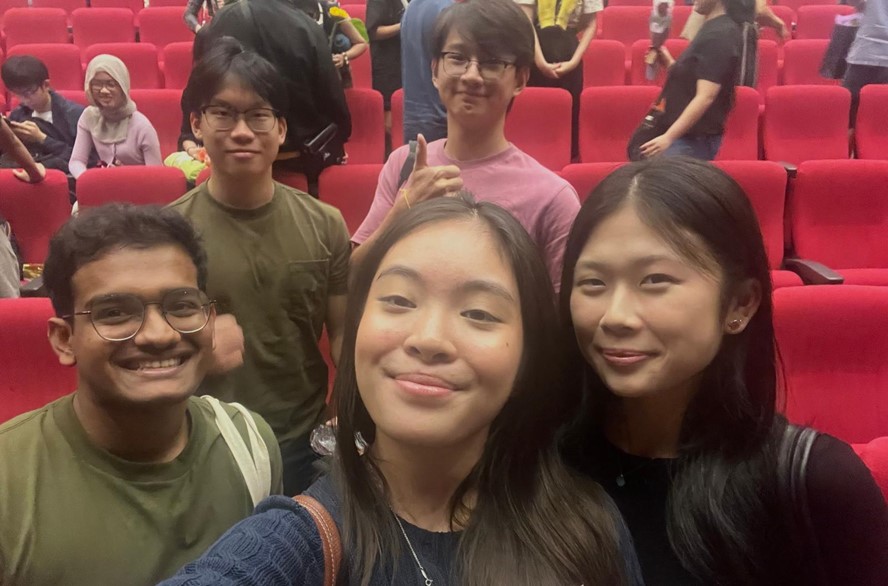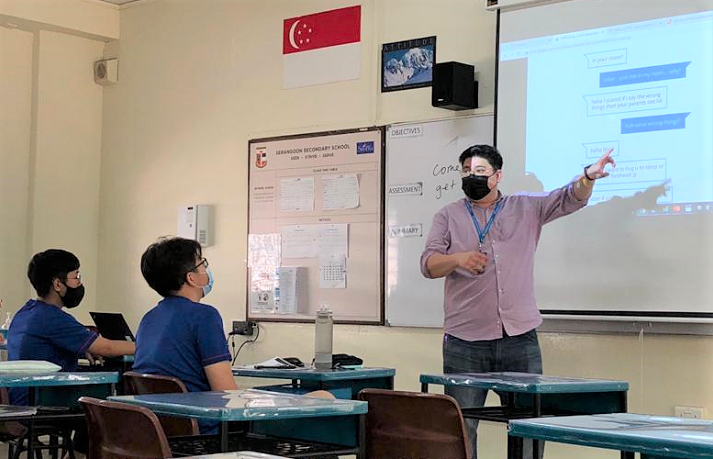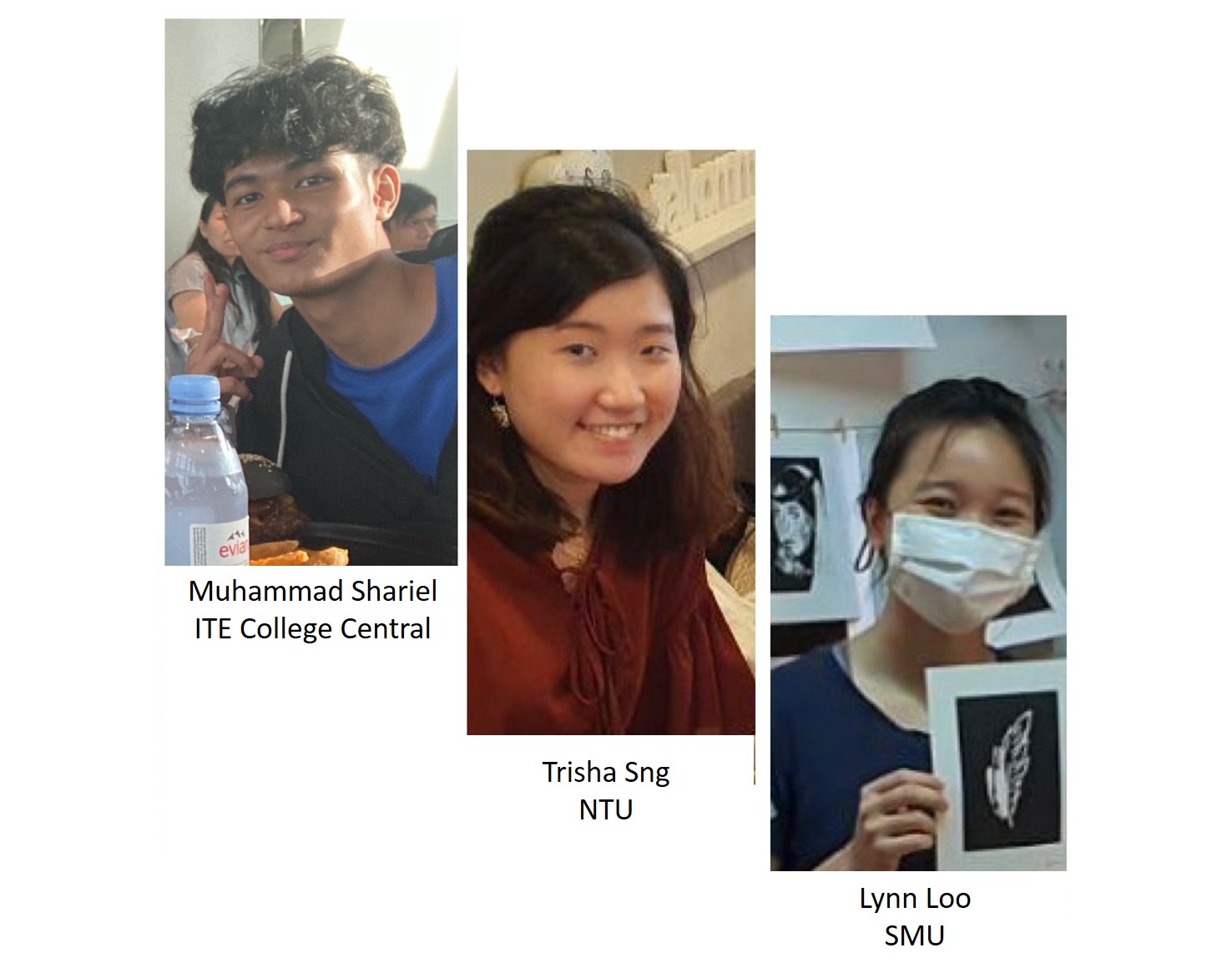School at the Junior College level can be tough. Having to acclimatise to a new environment, facing increased academic pressures and navigating newfound relationships can be stressful just as they can be exciting. But juggling these different aspects is not impossible, shares three students who have found their own way of managing such stresses, while learning from challenges to facilitate their personal growth.
1. Tanjim Rahman says the support from friends and teachers has been invaluable
A JC2 student at Anglo-Chinese Junior College (ACJC), Tanjim Rahman was initially drawn to the school’s strong community spirit. After entering ACJC, he has learnt to find his own equilibrium managing his studies, duties as the Debate and Oratorical Society president, and friendships.

This wouldn’t have been possible without the support of his seniors from ACJC’s Debate and Oratorical Society who extended their friendship. They “never really let him feel alone”, says Tanjim, and he came to discover his own interests and found motivation through them. “I take physics, chemistry, maths and economics – all at the H2 level – and I really love the subjects. I quite enjoy seeing logical things play out, especially in the real world,” he shares.
He admits that school is not always easy, and that the schedule can get stressful. He recalls a period where he was part of the team for a major, international debate competition organised by his school. At the same time, he was also preparing for his exams and attending H3 physics lessons. After talking to his physics teacher and H3 physics tutor, and doing a good amount of self-reflection, he decided to step back from his H3 lessons. “I think I was quite fortunate to understand what I’m able to take off my plate,” he says.
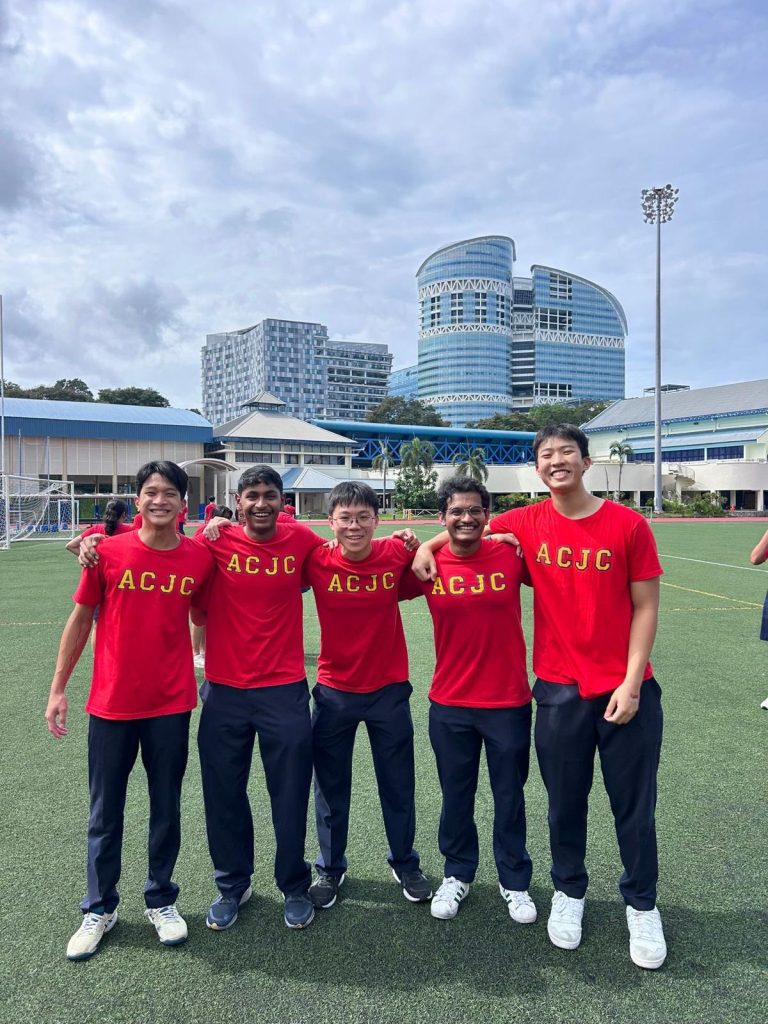
Because his teachers and friends have his back, Tanjim is able to thrive in JC. “I’ve made a lot of friends here, and I will cherish the 20-minute breaks we get between lessons that we spend together,” he elaborates.
To pay the support he has received forward, Tanjim strives to create a positive environment for his peers as his seniors had for him. “Besides making new friends, I maintain my friendships with simple gestures like just saying hi when we pass each other by.” Also, as president of the Debate and Oratorical Society now, he makes it a point to take his team out to dinner after a particularly challenging competition.
2. Janelle Yeo uses every moment intentionally to make the most of her day
Having myriad interests and responsibilities, artistic swimmer and Student Council President Janelle Yeo keeps herself going by drawing on the mental resilience and discipline that athletes so require. The final-year student at Singapore Sports School understands that to do all that she wants to – training, studying, volunteering, playing the piano, attending church, socialising and resting – it is crucial to use every moment intentionally.

“I make sure that I prioritise what I have to do,” she shares. “In between school and training, I have pockets of time, so I use it wisely. For example, when I’m travelling on the bus to training sessions, I’ll use my iPad to study.”
But it’s not all work and no play for Janelle, who was also formerly Deputy Head of Well-being of the Student Council and a Singapore Association of Mental Health volunteer. “You need to know when you need to relax and when you need to do your work. If you say yes to everything all the time, it’s going to be very hard to juggle everything,” she elaborates.

Consciously checking in with her own mental state is what helped her overcome one of her most difficult times in school. At that time, Janelle was training for her first major competition, the FINA Youth World Championship in the US. “The hours were a lot longer,” she recalls. “Usually, club training sessions would be two hours, whereas National Youth team training sessions were double that. I was very worried because our coach was stepping up the training.”
As she tried to balance the intense training sessions and her studies, Janelle found herself drifting apart from her friends. She realised she needed to channel her anxiety somewhere, so she started journalling, which helped her reconnect to her sense of purpose. “I just started typing my feelings in my iPad, as though I was talking to someone, and I realised how at peace I felt afterwards,” she recalls. She was able to look at her situation with a new perspective, so she now journals whenever she feels stressed. “I just open my journal and start typing an entry, even if it’s a short one.”
3. Rachel Sonsun stays adaptable to gracefully navigate through her many responsibilities
Rachel Sonsun is in her final year at St. Joseph’s Institution pursuing the International Baccalaureate Diploma Programme (IBDP). She is also the Student Council President, and has to manage her academic studies with occasional Creativity, Activity, Service (CAS) activities. Despite her multiple roles and responsibilities, she remains open to meeting new people and exploring diverse experiences because she believes it allows her to learn from others while building on her own unique strengths.
For instance, she initiated an activity of her own with her friends, where they would trek for 10 hours from the north to south of Singapore. For Rachel, this was an opportunity to connect with her friends, keep physically and mentally healthy, while fulfilling their CAS hours for school.
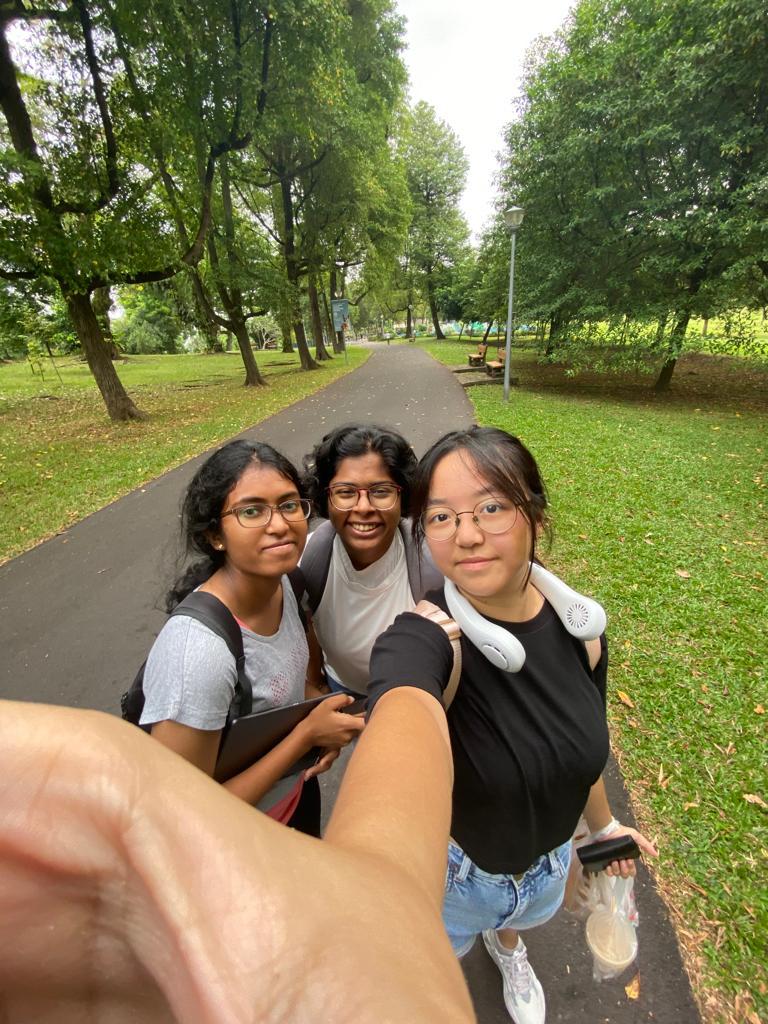
As for her studies, she candidly admits that she used to be someone who studied only “when you have to”, i.e. only cramming right before the exams. While that has allowed her to juggle her different responsibilities in the past, she has come to realise that it’s not a sustainable lifestyle when the rigorous EETOKIA (Extended Essay, Theory of Knowledge, and Internal Assessment) period comes around. During this time, she has to quickly adapt to a sudden onset of schoolwork. “The deadlines are all clustered together between March and May.” In such times, flexible time management and self-discipline are crucial, she notes.
To get a better sense of how to manage her time, Rachel looked at how others around her balance their studies and other responsibilities. “The student-athletes in my school are definitely the most disciplined and fun-loving people,” she observes. “They enjoy coming to school, they stay focused through lessons, they train hard. And after that, they go home and they study.”
Learning from student-athletes, as well as her friends who are “really good at balancing it all”, Rachel quickly adapted from studying “when you have to”, to putting effort across the school year more consistently. “You have to follow some sort of study plan and it’s all about prioritising,” she concludes. By understanding where to delegate her time and attention, Rachel is able to remain flexible and retain her focus on different responsibilities across the school year.



